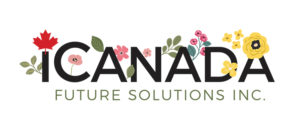According to a recent Statistics Canada report, nearly 60% of internationally trained healthcare professionals (IEHPs) in Canada, including nurses, physicians, pharmacists, and dentists, are employed in their respective fields. This promising discovery indicates Canada’s effective integration of IEHPs into the healthcare sector.
The report also revealed variations in the employment rates of IEHPs based on their field of study. Among the four major fields, those who specialized in nursing exhibited the highest employment rate at 80%, while those in dentistry had the lowest employment rate at 72%.
Additionally, the report highlighted that IEHPs with prior Canadian work experience were more likely to secure employment in healthcare occupations. IEHPs possessing Canadian work experience boasted an 83% employment rate, whereas those lacking such experience had a 73% employment rate.
These findings offer a promising outlook for Canada’s ability to effectively incorporate IEHPs into its healthcare workforce—a critical step in addressing the country’s healthcare professional shortage. The Canadian Medical Association estimated a shortage of 85,000 physicians by 2025, emphasizing the significance of this integration.
The Canadian government has already taken action to tackle the healthcare professional shortage. In 2021, a substantial $2 billion investment was announced to facilitate the training and recruitment of healthcare workers. The government is also streamlining the credential recognition process for IEHPs in Canada.
These report findings indicate that Canada is making strides in addressing its healthcare professional deficit by integrating IEHPs into its healthcare sector, ensuring Canadians have access to quality healthcare.
Implications for Filipino healthcare professionals considering immigrating to Canada:
Insights hold particular relevance for Filipino healthcare professionals contemplating immigration to Canada. Canada’s reputation as a desirable destination for Filipino healthcare professionals is due to its high standard of living and abundant job opportunities.
The report indicates that Filipino healthcare professionals have a favorable chance of finding employment in their field of study in Canada. However, it is crucial to acknowledge that employment rates for IEHPs differ by field of study. Therefore, Filipino healthcare professionals should conduct thorough research on the employment market within their specialized field before making a decision.
It also reflects the importance of obtaining Canadian work experience for better chances of securing employment in healthcare occupations. Filipino healthcare professionals interested in immigrating to Canada should explore avenues for gaining Canadian work experience, such as participating in working holiday programs or international volunteer opportunities.
These findings offer a positive outlook for Filipino healthcare professionals considering immigration to Canada. Canada is an inclusive nation with a strong demand for healthcare professionals. Filipino healthcare professionals, with dedication and effort, can establish a successful career in Canada.





